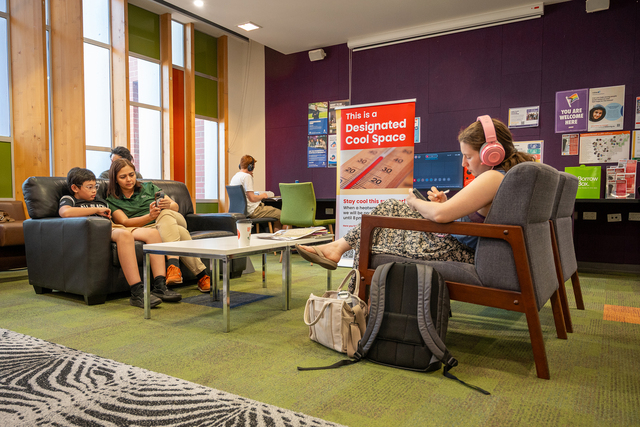Last month’s announcement of an in-principle agreement of a Free Trade Agreement (FTA) between the United Kingdom (UK) and Australian governments is excellent news.
The core reason is that it gives both nations the opportunity to rejuvenate the economic relationship. When the UK entered the European Economic Community in 1973, it went from being Australia’s third largest trading partner to now its twelfth, as tariffs and import quotas on Australian goods took effect.
The big beneficiary will be financial services. London has long been the global epicentre and has a long working relationship with our main financial hubs, Sydney and Melbourne. The opportunity is to now ramp this up into the Asian market. Marketing and advertising services are a similar case.
Digital and e-commerce is the other standout. The UK and Australia both have a strong track record of innovation in this sector, and the capabilities are geographically spread. This means that regional cities (e.g. Ballarat, Hobart, Townsville, Canberra) have fascinating potential to form alliances with UK hot spots (e.g. Manchester, Bristol, Birmingham, Oxford, Cambridge). And the digital economy is so pervasive that its growth will drive the competitive advantage of
many other sectors.
The food sector is the expected main third beneficiary. While Tim Tams are grabbing headlines, the breadth of business opportunities is quite amazing. This is because the European Union’s protectionist policies effectively closed down so many of our food supply chains to the UK. The revolution in air freight over the last decade means that food exports into the UK will now be much more competitive.
How did this FTA evolve? Well it’s been a long journey but Boris Johnson was the trigger. He spent a gap year at Geelong Grammar’s Timbertop School, and it left an indelible memory and goodwill towards Australia. Credit must also go to our former Foreign Minister, Julie Bishop, who picked up on this and became good friends
with him.
And thirdly there are our TV soapies and sports that have put Aussies in a good light. For example, I was on a London bus a couple of years back, swearing at the stubborn ticketing machine. The driver looked at me in his mirror and said ‘Don’t worry mate, judging by that accent, I think we can give you a free ride.’ Almost brought a tear to the eye.
Productivity Commission’s misplaced concern about protection
Michael Brennan, Chairman of the feds’ Productivity Commission (formerly known around the traps as the Industries Assassination Commission), gave an illuminating speech recently. He basically argued that there’s too much complacency about rising debt, and warns of the potential ‘great cost’ to current and future generations of taxpayers. His comments were totally gratuitous since they were well outside the remit of the PC, but he’s basically right.
But Brennan got back to familiar PC ground by opining that the renewed promotion of national self-sufficiency in manufacturing would make Australians ‘poorer’. And he criticised the recent push for the ‘renewed promotion of ideas of national self-sufficiency and sovereign capability coming out of the pandemic’.
For example, he observed that the government’s manufacturing policy now identifies the need for more domestic manufacturing capability in personal protective equipment, vaccines, oil refining and rare earths.
But he is alarmed that some business organisations and politicians want the domestic manufacturing capability to go even further! He adds that ‘Australia’s experience with the protection of domestic manufacturing – roughly an 80 year experiment – was not an overly happy one.’
This bloke is seriously misinformed. He clearly equates industry policy with protection, which is understandable given his closeted experience as a Victorian and federal Treasury official. But his thinking has to be challenged because – if it becomes mainstream – Australia will be poorer as a result.
I will say it again – industry policy for Australia in the 21st Century has to be about six things – nurturing innovation, value-adding our resources, creating competitive and distinctive capabilities, focusing on skills and training, building international supply chains and pursuing smart public procurement policies. None of these are protectionist.
Demise of a deputy PM
The overthrow of Michael McCormack as Nationals leader last month was sad. Sure he made a couple of bloopers when standing in as PM, but hey!
The nail in the coffin was the unwarranted jibe by a Newscorp journalist on the ABC’s Insiders program – specifically ‘that he wasn’t the sharpest pencil in the Derwent set’. The journalist in question has herself suffered numerous barbs in recent years, and should have known better. The fact is that politicians across the nation watch that program, and her comments would’ve confirmed the target on his forehead.
McCormack has never been comfortable in the hurly burly of politics, but he’s a decent and honourable person. He was easy meat for those like Newscorp intent on bringing the quintessential climate change denialist (Barnaby Joyce) back into the political mainstream.
PS – As I’ve said before, the best Nationals politician at the federal level is Darren Chester. His time will come.
Fishing industry research
If you’re in a fishing region, you can track industry developments via FISH magazine. It’s a marvellous publication, with lots of insights into different species, as well as the policies, programs and people relevant to the industry.
Peter Horvat, the long-time General Manager Communications and Trade, has left to take a job in Ausindustry – he’s worth writing in your ‘black book of proactive bureaucrats’.
FISH is in hard copy format so that folk can read it at their leisure. It’s free, which is a testament to the federal Fishing Research and Development Corporation and the fishing industry itself who obviously appreciate the importance of connecting research with industry. Go to frdc.com.au
Rod Brown is a Canberra-based consultant and lobbyist specialising in industry/regional development, investment attraction and clusters, and accessing federal grants. He also runs the Cockatoo Network.
Phone: (02) 6231 7261 or 0412 922 559
Email: apdcockatoo@iprimus.com.au
















